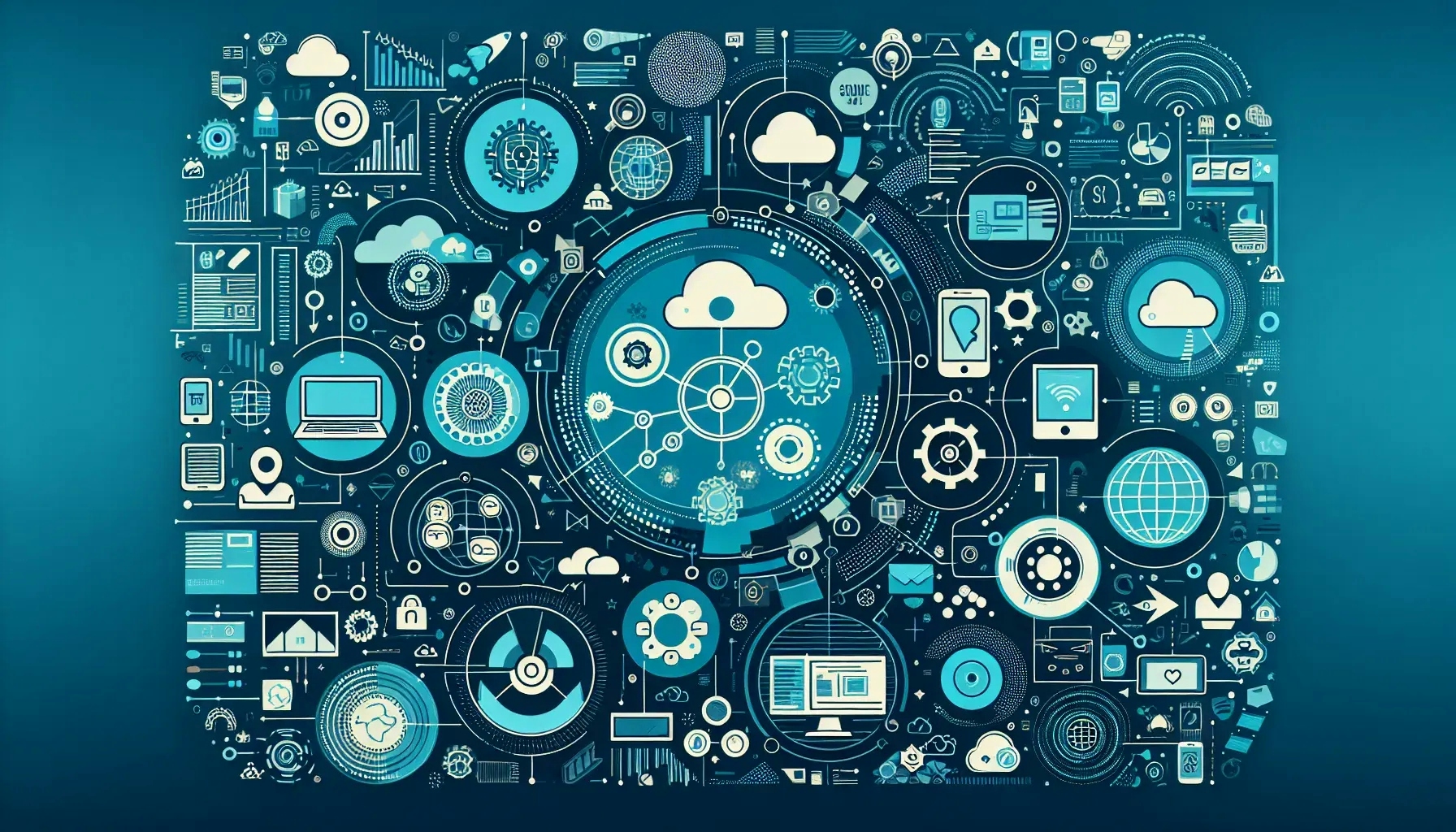Key Trends Shaping the Future of It Services
ITAdvice.io

The world of IT services is in a constant state of flux, with new trends emerging and reshaping the landscape. This blog post aims to shed light on these key trends, providing insights into how they are influencing the future of IT services. From artificial intelligence to cloud computing, these trends are not only changing the way businesses operate but also how we live our everyday lives.
The Rise of Artificial Intelligence
Artificial Intelligence (AI) is no longer a concept of the future. It's here, and it's making a significant impact on IT services. AI is transforming the way businesses operate, enabling them to automate processes, improve efficiency, and deliver better customer experiences.
AI is also playing a crucial role in data analysis. It's helping businesses make sense of the vast amounts of data they collect, providing them with valuable insights that can drive decision-making. Moreover, AI is enhancing cybersecurity, with machine learning algorithms capable of detecting and responding to threats more quickly than humanly possible.
Yet, the rise of AI is not without its challenges. There are concerns about job displacement, with AI potentially replacing human workers. There's also the issue of data privacy, with businesses needing to ensure they handle data ethically and responsibly.
The Shift to Cloud Computing
Cloud computing is another trend shaping the future of IT services. More and more businesses are moving their operations to the cloud, drawn by the promise of increased efficiency, scalability, and cost savings.
Cloud services allow businesses to access computing resources on-demand, without the need for significant upfront investment. This flexibility is particularly beneficial for small businesses, enabling them to compete with larger, more established competitors.
However, the shift to cloud computing also presents challenges. There are concerns about data security, with businesses needing to ensure their data is protected in the cloud. There's also the issue of downtime, with businesses reliant on their cloud provider's infrastructure.
The Emergence of Edge Computing
Edge computing is a trend that's gaining momentum in the IT services sector. It involves processing data closer to its source, rather than relying on a central location. This approach can reduce latency, improve performance, and enhance data security.
Edge computing is particularly relevant in the context of the Internet of Things (IoT). With billions of devices connected to the internet, there's a need to process data more efficiently. Edge computing can help meet this need, enabling real-time data processing and decision-making.
Despite its potential, edge computing is still in its early stages. There are challenges to overcome, including the need for robust security measures and the lack of standardization in edge computing technologies.
The Impact of Cybersecurity
Cybersecurity is a critical concern for IT services. With the increasing prevalence of cyber threats, businesses are investing heavily in cybersecurity measures to protect their data and systems.
The rise of AI and machine learning is playing a significant role in enhancing cybersecurity. These technologies can help detect and respond to threats more quickly, reducing the potential damage. However, they can also be used by cybercriminals to launch more sophisticated attacks.
The importance of cybersecurity is likely to continue growing in the future. Businesses will need to stay ahead of the curve, continually updating their cybersecurity measures to counter new threats.
The Influence of Blockchain Technology
Blockchain technology is another trend influencing the future of IT services. Originally developed for the digital currency, Bitcoin, blockchain has potential applications far beyond cryptocurrency.
Blockchain provides a secure, transparent way of recording transactions. This makes it particularly useful in areas like supply chain management, where it can provide a reliable record of product movements. It can also enhance data security, with its decentralized nature making it difficult for cybercriminals to tamper with data.
However, blockchain is still a relatively new technology, and there are challenges to its widespread adoption. These include the need for regulatory frameworks and the lack of understanding about how blockchain works.
The Role of 5G Technology
The rollout of 5G technology is a trend that's set to have a significant impact on IT services. 5G promises faster speeds, lower latency, and the ability to connect more devices simultaneously.
This could open up new possibilities in areas like IoT, virtual reality, and autonomous vehicles. It could also enable more efficient remote working, with employees able to access high-speed internet from anywhere.
However, the rollout of 5G also presents challenges. There are concerns about the potential health impacts of 5G radiation, and there's also the issue of ensuring coverage in rural areas.
The Future of IT Services: A Landscape Shaped by Key Trends
The future of IT services is being shaped by a range of key trends, from AI and cloud computing to edge computing, cybersecurity, blockchain, and 5G. These trends are transforming the way businesses operate, offering new opportunities but also presenting new challenges. As we move forward, it will be crucial for businesses to stay abreast of these trends, adapting their strategies to leverage the opportunities they offer and mitigate the risks they pose.